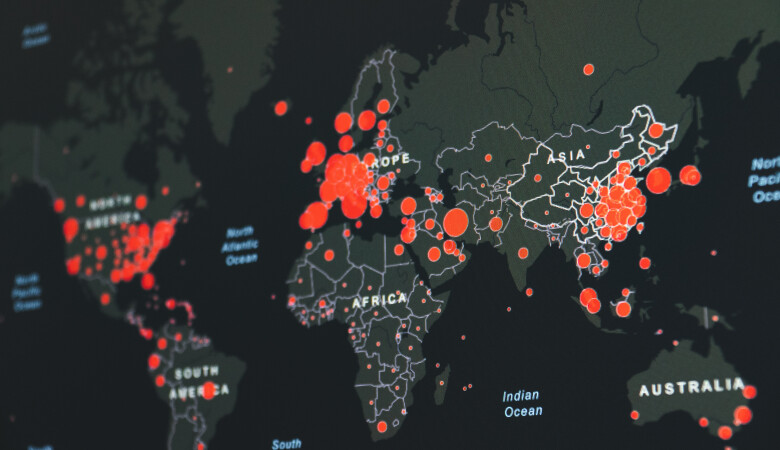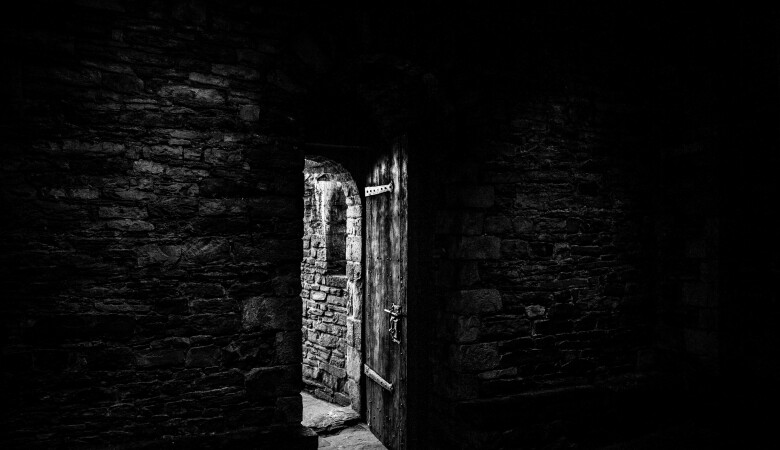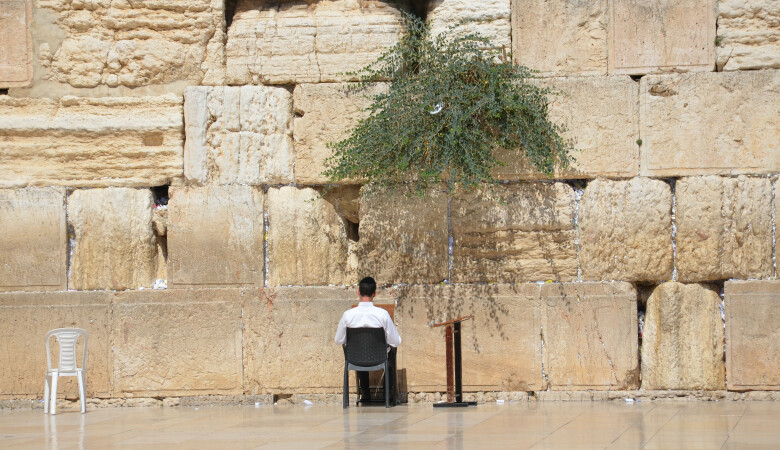Series: Mark
Suffering Service: The Measure of True Greatness (Mark Sermon 53)
May 14, 2023 | Andy Davis
Mark 10:35-45
Joy in Suffering, Supremacy of Christ
Places of honor are won by those who suffer for the kingdom; a cup of suffering is necessary for all who would be honored in the Kingdom of God.
- SERMON TRANSCRIPT -
Turn your Bibles to Mark chapter 10. We continue to make our way through Mark's gospel. We come to this vital passage today. Thirty-five years ago this week, I watched one of the most exciting basketball games I've ever seen in my life. Some of you are sports fans, some of you aren't. So I'm going to bore some of you for the next minute or so and others will be really excited, but that's okay. But I want to talk about this just because of something that was said. It was actually a Celtics NBA basketball game, a playoff game, game seven between the Celtics and the Atlanta Hawks.
It was the last time that Larry Bird was really just amazing and dominant as he and the Atlanta Hawks star, Dominique Wilkins, went back and forth trading baskets, one shot after another. Each one seemed to be more spectacular than the last. It was really almost like a man to man duel between the two of them with the season hanging the balance for one or the other team. During the game, the announcer, Brent Musburger, said something that has been played again and again since then, and it stuck with me even if they hadn't played it. After Larry Bird made a particularly remarkable shot, he said, "You are watching what true greatness is all about." I thought, "Hmmm." I like basketball, but I'm a Christian and that is not what true greatness is all about. I mean, I'm glad the Celtics won that day, don't get me wrong, but you know what? I've seen pictures of Larry Bird and he's old now. The Boston Garden they played in doesn't even exist anymore. It's been torn down, it's gone. I think about what Isaiah 40 says when it says, "All flesh is grass and all their glory is like the flower of the field." Friends, that is not what true greatness is all about. No sports is.
What is true greatness all about? The text brings us right to that topic. It's something that captivates our minds. People are interested in greatness. I was at a graduation yesterday for my son at UNC-Charlotte. As they have at graduations, they honor different students for academic achievement. They do it with this Latin phrase, cum laude, magna cum laude, and summa cum laude, which means with praise, with great praise, with the greatest or highest praise. So greatness. We're interested in that hierarchy of good, better, and best. We're always analyzing what is good, what is better, what is the greatest.
Remember for me, as somebody who loves history, at the end of the 20th century, Time Magazine listed the top 100 greatest individuals from the century that had just been completed, the 20th century. They walked through different individuals that they felt should be on the list, 100 greatest people of the 20th century. They're inventors like the Wright Brothers who invented the airplane, and there was Robert Goddard who invented liquid fueled rockets that enabled eventually space travel and landing men on the moon. There was Tim Burners-Lee who invented the internet; William Shockley, who invented the transistor, ushering us into the digital age. Enrico Fermi was on the list who split the atom, and then of course, Albert Einstein who gave us the theory of relativity. All those scientists and inventors were on the list. Of course, they were influential political leaders from the 20th century like Winston Churchill and FDR and Nelson Mandela. Other leaders of movements like Martin Luther King Jr. were on the list. They're even entertainers and film stars and rock stars and authors, poets, actors, fashion icons, business leaders. So Coco Chanel, Lucille Ball, Bob Dylan, Charlie Chaplin, Sam Walton, all these folks are on the list. However, Time Magazine, the list there was not seeking to identify if any of these people were actually great people, just really that they'd had a great impact, so Adolf Hitler was on the list; Joseph Stalin was on the list; Mao Zedong was on the list. These are mass murderers, tens of millions killed because of their policies, but they're great on the list. They're mixed in together with people that most secular individuals felt were good people such as Billy Graham or Mahatma Gandhi, just all of them mixed together on the list. There was no filter for basic human goodness.
In our passage today, we have two disciples, James and John, seeking positions of greatness in the kingdom of God. Jesus has therefore the opportunity to address the topic of greatness, both great power and also great character in one key moment. This lesson on the nature of true greatness stands over all human beings for all history as both the goal to strive for and the standard by which we are going to be judged on Judgment Day. Ultimately, it doesn't matter at all who the world thinks is great. The only thing that will matter on that day is, "What does God think?" What does God think? Who does God think is great?
Here in the text today, we have the standard. Whoever wants to become great among you must be your servant, and whoever wants to be first must be slave of all for, even the Son of Man came not to be served, but to serve and to give his life as a ransom for many. To Jesus Christ then, true greatness came down to this, humble suffering servanthood, the humble suffering servant. Whoever's willing to pay the most, lay down his or her life to benefit to bless others will be called greatest in the kingdom of God. Now, the standard is simple. We can understand it, yet it may be one of the most difficult lessons that any of us ever learn.
I. The Perversion of Greatness: Self-Promotion
So let's walk through the text and let's begin with the perversion of greatness. The perversion of greatness which is self-promotion. It's very common these days. Putting yourself forward, espousing all of your best attributes, in effect, selling yourself. It's been going on a long time. James and John are practicing it with Jesus to some degree in this text, twenty centuries ago. Secular kingdoms have been dominated by this self-promotion and politicking throughout history. In the Roman Empire, counselors to the Caesars would orchestrate political scandals for one another to knock off their rivals by shame. That failing, they might just have them poisoned. Cicero, the leading order of the Roman Republic, was an expert at dirty politics, smearing an opponent with rhetoric and with innuendo of immorality; he's very good at it, Cicero.
In the European courts of the Middle Ages, lords and nobles would fight joust with each other to show their courage or loyalty or military prowess. They would jockey for position. Others would go on great quests, military quests to achieve some dramatic goal in order to secure the undying affection of the king and garner position of power in his kingdom. Now, in the modern era, in our era, people use social media often to position themselves for greatness and to cancel their rivals, so to speak, using smear tactics, finding some damning incident from that person's youth or earlier in their history to damage their career, to damage their reputation in the cyber community. As it said, the internet never forgets. There's no escaping those past moments.
Now, the same thing happens in the secular, the corporate world as well. Young ladder climbers use power techniques. I came across a book some time ago entitled and I'm not commending this book, but this is the title, 21 Dirty Tricks at Work: How to Win At Office Politics. So you heard me say, I'm not commending this. I'm just telling you what's in the book. Techniques like stealing credit for someone else's success, trapping someone in a compromising situation and then blackmailing them, using flattery to gain someone's confidence and then at the right time backstabbing them at a key board meeting, et cetera, et cetera. These are the ugly tactics used for self-promotion to gain position in the corporate environment.
I don't think James and John were at that level, but they're jockeying for position in the kingdom. It's been going on a long time, advancement by self-promotion. They come forward and make this selfish request. I want you to notice the context. Those of you here last week, you remember what I preached on as Jesus predicted again what was going to happen to him in Jerusalem. He was going to go up to Jerusalem and He was going to die on the cross. They were going to spit on him. They were going to beat him. They were going to crucify him. This is what's going to happen. Then James and John come and say, "Hey, let us sit at your right and left side."
The timing's terrible, the selfishness. Do you see? It's just really shocking as they come angling for this position, but that's how they do. They come in and they ask effectively for a blank check from Jesus. Look at the text 35-37, “Then James and John, the sons of Zebedee, came to him. ‘Teacher,’they said, ‘we want you to do for us whatever we ask.’" Interesting. I liked this answer, “What do you want me to do for you?” Notice that. That's a key moment right there like in the theology of prayer. It does matter what you ask. It needs to line up with my purposes. “What do you want me to do for you?” “They replied, ‘Let us sit one of us at your right hand and the other at your left in your kingdom.'" We want you to do whatever we ask. Jesus says, "You got to tell me what you want.” They want to be effectively the second and third most powerful men on earth. That's what they're asking for. They want to sit at Jesus's right and his left in his glory, in his kingdom glory, his place of access to power and of personal prestige and exaltation. In Matthew's account, this request comes through their mother, “Then the mother of Zebedee's sons came to Jesus with her sons and kneeling down asked a favor of them.” One thing you learn with the synoptic gospels, whenever any one of them adds some information, that's true. If the other one doesn't have it, they're just simplifying the account and leaving things out. All of the gospels leave things out, but this is what happened.
Ultimately, Jesus knows who put the mother up. It was coming from James and John, but they're going with mom, kneeling down to ask a favor of them. “'What is it you want?’, He asked. She said, ‘Grant that one of these two sons of mine may sit at your right and the other at your left in your kingdom.'" Some of you moms will know exactly what's going on here. This is a big moment for her. Indications are from the studies and the New Testament that this woman, James and John's mother was named Salome and was a sister of Mary, the mother of Jesus, so is therefore Jesus' aunt and that would make James and John Jesus' cousins. Friends, this is nepotism. That's what this is. This is family ties. This is an old, old trick here. Napoleon places brothers on thrones all around Europe. This is what people do.
Jesus wants to expose this perversion of greatness here, verse 42, “Jesus called them together and said, ‘You know that those who are rulers, regarded as rulers of the Gentiles lorded over them and their high officials exercise authority over them.’" This is the perversion of these positions of power having obtained them through self-promotion. The Gentiles use them for selfish purposes. They dominate others and they stoke their egos with their positions of power, with displays of grandeur.
They're these outward displays of power and prestige, trumpet sounding at the approach of the Roman governor, regal purple banners fluttering in the air, a manner of superiority in their speech, haughty air like the famous statement made by Maria Antoinette about the poor in France, "Let them eat cake." There's that dismissive attitude toward the poor. These rulers and officials love the places of honor and the most important seats and the lofty greetings and the words of praise, the trappings of power. This is the way it always is with the rulers of the Gentiles. It's what they do. You think about the Sun King, Louis the 14th of France built the Palace of Versailles with the most elaborate displays of wealth, golden frameworks around mirrors, embedded jewels in fireplaces, crystal chandeliers, a whole hall of mirrors to give visiting dignitaries from other nations as well as his own people a sense of their own smallness and inferiority compared to him, the Sun King, Louis the 14th. Ultimately, worldly rulers use their positions to fatten themselves with luxurious living. Sadly, it seems some of this was on James and John's mind too. That's why Jesus mentions it. They're hiding behind their mother. They're using family connections. They’re angling for top positions in Jesus' kingdom.
Now, keep in mind, the disciples' errant view of what was about to happen was effectively a secular kingdom of power and prestige, just like Jesus is talking about here. That's what they thought was about to happen. Jesus is going to use his supernatural power to defeat the Romans, defeat all Gentile enemies and establish a Jewish empire from sea to sea ruling over the entire earth with Jesus as the king, and them, second and third in power. That's what they thought was about to happen. Jesus has to expose how faulty that view of power really is.
II. The Price of Greatness: Suffering
Secondly, we see the price of greatness which is suffering. “'You do not understand what you're asking,’” verse 38, “Jesus said. ‘Can you drink the cup I drink and be baptized with the baptism I'm baptized with?’” Again, the context. As I said, the very last thing that happened is Jesus, in detail, predicted the sufferings He was about to go through. He's bringing their minds to this again and again. They did not expect the crucifixion. They weren't thinking it was going to happen. It did not factor in. You don't understand what you're asking, He says. He has to educate them. He has to strip their presumptions bear. Like all the other disciples, their understanding of the kingdom and its glory is woefully inadequate. Jesus has to educate them about the nature of the kingdom and the positions of power within it.
Now, note something very important. Jesus does not deny that there are such positions of power, there are. There will be individuals sitting at his right and his left in his glory. It's actually going to happen. The Book of Revelation pictures 24 elders seated on 24 glorious thrones, encircling the throne of God. Jesus said the twelve would sit on twelve thrones judging the twelve tribes of Israel [Matthew 19:28], but they definitely don't understand the price of all of that. They don't understand the cross. The blood of Jesus essential that must be shed for their sins to qualify them to be in heaven at all and the suffering needed to build his worldwide kingdom, they didn't understand any of that. So no, they don't understand what they're asking and neither do we really, but Jesus is ready in this text through the Holy Spirit to educate all of us. The price of glory is suffering.
Verse 38, “Can you drink the cup I drink or be baptized with the baptism I'm baptized with?” What is the cup? What is the cup Jesus is going to drink? In Gethsemane, we're going to see him shrinking back from the cup. God reveals the cup to him, I believe at a far deeper level than even Jesus had ever seen before, and it literally will knock him to the ground and cause blood to come out of his pores as He contemplates the cup. He says in Mark 14:36, "Abba, Father, everything is possible for you. Take this cup from me. Yet not what I will, but what you will." What is a cup that could knock Jesus to the ground but the cup of God's infinite wrath against sin? Jesus will have to drink it to save us from that wrath. That's the cup. It's a cup of suffering that He's going to pay.
As always, Jesus brings their naive and immature conceptions again to the cross because they just can't seem to understand it. The baptism, what is that? It's just a different way of saying the same thing, I believe. The cup is the baptism, which is different ways of talking about it. Baptism means “immersion”. That's what the word means, and Jesus is going to be plunged into a sea of sorrow, plunged into a sea of the wrath of God, plunged into a sea of sin as our sin bearer, as our substitute. Jesus says in Luke 12:50, "I have a baptism to be baptized with, and how great is my distress until it is accomplished?" Literally in the KJV of that verse, Luke 12:50, He says, "How straightened." I am straightened as if constrained in a straight jacket. I'm like in a straight jacket until I finally die on the cross. Jesus lived his whole life under the cloud of the cross, under the pressing crush of that weight. He's always thinking about it and they make a typically glib answer. “You don't know what you're asking. Can you drink the cup I drink and be baptized with the baptism I'm baptized with?” "We can," they answered. Jesus had already said, "You don't understand what you're asking." He could say it again, you don't understand what you're talking about. They had no real conception of this cup, no real conception of the baptism, and so they lightly said it. They overestimate just like Peter will do, “Even if all fall away, I never will," overestimating. We're going to spend eternity studying the infinite dimensions of that cup and that baptism. We'll spend eternity plumbing its infinite depths. They don't even have the first small inkling of what they're talking about. James and John thought they could handle anything that came their way or was required for the seeds of honor and the kingdom, but then Jesus made a prophecy about their future. In verse 39, He says, "You will drink the cup I drink and be baptized with the baptism I'm baptized with." They would share in Christ's sufferings. There would be bitter drops that would come from Jesus' cup. They would not drink the cup, but they would drink from the cup. They would drink an aspect of it.
"Baptism means 'immersion'. That's what the word means, and Jesus is going to be plunged into a sea of sorrow, plunged into a sea of the wrath of God, plunged into a sea of sin as our sin bearer, as our substitute."
James would be the first of the twelve apostles to be martyred as the account gives us in Acts chapter 12. King Herod had him beheaded, executed. John, his brother, would die in exile on the island of Patmos off the coast of Asia Minor, having suffered for the kingdom of God and the testimony of Jesus, he said. Now neither of them would truly drink the cup, the wrath of God for sins. That's something Jesus had to do alone. He had to do it alone. He's the only one that could do it, but they would drink some of this. So fundamentally, the lesson here is places of honor are won by suffering for the kingdom. They have a high price tag. There is a cup of suffering necessary for all who would be honored by the kingdom.
III. The Plan of Greatness: Sovereignty
Thirdly, the plan of greatness, and that is sovereignty. They were forgetting the plan of almighty God. Ultimately, all places of honor have already been earmarked. They've already been tabbed by almighty God. God's not wondering who's going to be sitting in those seats. He knows exactly who's sitting in those seats. Look at verse 40, “To sit at my right or my left is not for me to grant. Those places belong to those for whom they have been prepared.” Jesus is pointing to the sovereign plan of almighty God. Everything has been planned out down to the tiniest detail. Nothing has been left to chance. God the Father has planned all of human history, planned it before the world began. All the days ordained for all of us were written in God's book before one of them happened.
It says in Ephesians 1:11, "In him, we're also chosen having been predestined according to the plan of him who works out everything after the council of his will." How much is everything? Everything, friends, is everything. So no, it's not an accident who's going to sit at the right or the left in Jesus' eternal kingdom. Those places belong to those for whom they have been prepared by my Father. How does that work? The place of honor prepared by God's plan before the foundation of the world, the fullness of time and the right time, individuals are born into certain circumstances. God shapes them and crafts them for a role in the kingdom, and He prepares good works in advance that they should walk in them, [Ephesians 2:10], and then He prepares them to walk in those good works, gets them ready to do it, and then He empowers them to do those good works which they could never have done apart from Jesus. “I am the vine. You're the branches. Apart from me, you can do nothing.” So abiding in Jesus by the power of Jesus, they do amazing good works even to the point of martyrdom, even to the point of laying down their lies for the kingdom. They do those good works. Specific servants suffer specific miseries and pains and dangers for the kingdom, and they receive corresponding honors because of them.
Paul mentions in Philippians 2, a man named Epaphroditus. He says in Philippians 2:29-30, "Honor men like him because he almost died for the work of Christ, risking his life to make up for the help you could not give me." Honor men like him because he risked his life for the gospel. Or again, we have the great hall of faith. Hebrews 11:36-38 says, "Some faced jeers and flogging. Still others were chained, put in prison. They were stoned, they were sawn in two, they were put to death with the sword. They went about in sheepskins and goat skins, destitute, persecuted, and mistreated. The world was not worthy of them. They wandered in deserts and mountains and in caves and holes in the ground."
The price of greatness is suffering and the honors and the thrones and all that are proportional to that. Can you drink the cup I drink and be baptized with the baptism I'm baptized with?
Ultimately, even those great servants of God who do great things for Christ will understand in heaven how they don't deserve to be there. Their sins were paid for by the blood of Jesus. All of the good works they did, they did by the power of Christ. So like the twenty-four elders in Revelation 4, they're going to be continually getting down off their thrones of glory and casting their crowns before the throne of God forever, but there are their thrones and there are their crowns to cast because they belong to them.
All positions of power and honor come from God's sovereign plan. John the Baptist himself said this, John 3:27, "A man can receive only what has given him from heaven." Again, Psalm 75:6 and 7, "No one from the East or the West or from the desert can exalt a man, but it is God who judges. He brings one down and he exalts another." It's the plan of God.
IV. The Path of Greatness: Servanthood
Fourth, the path of greatness is servanthood. The ten were indignant when they heard this. Look at verse 4. This is so human, isn't it? Aren't you glad? I'm not glad for sin, but I'm glad that the Bible's honest. Listen to this, “When the ten heard about this, they became indignant with James and John.” They're pridefully angered. They're annoyed. They're irritated. Pride was corrupting their relationships already. The lust for power was in them. The precise thing that brought Satan down from his glory, a lust for power, was in their hearts too. Deep roots in human natures, deeply in these twelve. Jesus has to deal with this again and again and again with these men. He dealt with it in Mark 9. We already saw when they're arguing, remember, about which of them was the greatest. He has to take a little child and have the child stand among them. He's going to have to deal with it right to the end, the last supper. As they go in there, they're arguing about which of them is the greatest. If I can just stop the narrative right there and say “none of them.”
In our text today, it says, "Whoever wants to become great..." He's showing a pathway to greatness. How can we become great because we're not great yet? What had these guys done? They went out on a mission trip and drove out some demons by the power of Jesus and then they came back. Other than that, what did they do? They did what we read about them doing in the gospels, which isn't much. So you want to become great? That's what we're talking about. How can I become a great man or woman of God? Here's the path. He highlights the contrast between his kingdom and the world’s, as we've seen. Jesus called them together and said, "You know that those who are guarded as rulers of the Gentiles lorded over them and their high officials exercised authority over them, not so with you. Instead, whoever wants to become great among you must be your servant. Whoever wants to be first must be slave of all. For even the son of man came not to be served, but to serve and to give his life as a ransom from many."
So Jesus' kingdom, his whole approach is radically different than the world's. He's going to say to Pontius Pilate, "My kingdom is not of this world. If it were, my servants would fight to prevent my arrest. But as it is, my kingdom's of another place." He has a whole different way of doing kingdom here. It's a whole different approach. So they lord it over. They do all these places of honor. Jesus is going to go to a deeper level. Those kingdoms are built by prideful plunder, aren't they? Isn't that the history of the world? Bloodshed. People become powerful militarily, they see what their neighbors have. They figure they can take them in a fight, and they do. They sweep in into their walled villages and they take their stuff, their livestock, their gold and silver. They kill and plunder and they add them to their kingdom. That's how empires have always been built. Read about it in Habakkuk chapter 2, “Woe to him, who builds a city with bloodshed and establishes a town by crime.” That's world history, friends. That's why Daniel 7 pictures these empires as beasts coming up out of an ocean. They're ravenous. That's how the kingdoms of this world are built, but Jesus' kingdom isn't built that way, not by those who are willing to go kill, but by those who are willing to go die.
"Jesus' kingdom isn't built …by those who are willing to go kill, but by those who are willing to go die."
It's a whole different approach as He cites his whole strategy in John 12:24, “Truly, truly I say to you, unless a kernel of wheat falls into the ground and dies, it remains alone. But if it dies, it brings forth much fruit.” That's how the kingdom is built. That's what we're talking about here. The pathway to greatness is fall to the ground and die. Serve, serve others, die to yourself. Again, ambition for kingdom and glory is not a bad thing. You want to be great? Good. I want you to be great. I want you to want to be great. Let me tell you how to become great. You should be ambitious to become great. Be great like this. Be a servant. Humble yourself now. Stop living for yourself. Stop living for your earthly advantages. Stop living for your earthly pleasures. Stop thinking, "What's the best way I want to spend my time? How should I spend my money on myself? How can I advance my interest?” Stop all that. Deny yourself daily. Make yourself nothing and find out how you can meet the temporal needs of others? How can you bless someone else today? When you have achieved a beginning level of servanthood, become an even more servant. Go even lower. Just keep going down. Now, what more can I do? Go even lower. You want to become great? Be a servant. But if you want to be greatest, first of all, be the lowest of all. The low person was a “diákonos” from which we get the word “deacon”, a house servant, almost like a paid employee who did certain levels of tasks, but could leave the estate if he wanted to, a table waiter kind of thing. That's a “diákonos”. You want to be great, be like that. But you want to be the first of all, be a “doulos”, a bond slave. The lowest of the low. Go from “diákonos” to a “doulos”. You see the dissent right here. You want to become great? Serve.
First of all, be everybody's slave. That's a downward journey. The downward journey Jesus is describing is the very one He went on and is on himself. We see the paradigm of greatness, our savior. “For even the Son of Man came not to be served, but to serve and to give his life as a ransom for many.” Jesus left heaven's glory and went down and then down some more and then down to the lowest place. First of all, He left a throne of glory that we can scarcely imagine and took on a human form. He was born in a stable to a poverty-stricken, obscure Jewish couple. He lived a humble life as a carpenter's son. He learned the trade from his father, Joseph. He took orders from customers for how they wanted the tables and chairs made and then did them. Let me think about the humility of that. It's like, "Do you know who I am?" “I don't care who you are. I want my tables and chairs by next Wednesday.” But Jesus wouldn't have said, "Do you know who I am?" He would've taken the order. Having learned how to be a carpenter, He would've made the tables and chairs.
When the time came when He was about 30 years old, He'd began his public ministry. All it was every day was a life of servanthood of people. Think what it's like, the healing ministry He did, which He seemed to do effectively one at a time with a touch, with a word, one person after another. No one was turned away, He never was too busy for anyone. He touched lepers. He drove demons out. He went with Jarius to heal his sick daughter. On route, He found out she was dead, and He went on and raised her from the dead. That's who He was. Being found in appearance as a man He humbled himself and became obedient to his father, serving others day after day.
He never refused anyone, but the ultimate picture, of course, is the cross. His substitutionary death on the cross was the greatest act of humble servanthood in history. That was the consummation of his downward journey, to lay down his life willingly. He was despised and rejected, humiliated, beaten, mocked, spat upon, condemned, and crucified. Here Jesus asserts that He ended the world primarily to lay down his life as a substitutionary ransom for many. He came to serve to the uttermost, to lay down his life in the place of sinners.
Now, here, we get to the theology. We get to the core of our Christian faith. This is the central core doctrine of Christianity. This is how sinners like you and I will be able to stand before God on judgment day, blameless and unafraid, because Jesus laid down his life in our place. The word “ransom" here means the “payment of a price”, money, let's say, to rescue a slave from bondage or a kidnapped victim from their captors. It's the payment of a price to rescue people from danger. That's what a ransom is. The Greek word “anti” is inserted here in the place of, so a substitute ransom. That's the theology of our atonement. Jesus laid down his life, He shed his blood as a substitute ransom for our sins.
Some medieval theologians misunderstood this ransom idea and came up with a thought of the ransom to the devil theory. Have you ever heard something so stupid as that, as though God and the devil are equal bargaining partners? Not at all. Nothing could be further from the truth. In C.S. Lewis's classic work, The Lion, The Witch, and The Wardrobe, we see Aslan the lion making the payment of his life for Edmund's liberation in response to the White Witch's demands. It's a powerful scene. But if we draw the line too directly, we could make a devastating theological mistake. Aslan clearly represents Christ in the story. The witch represents our accuser, Satan, all that's true, but Satan is not God's equal. Satan's not the one receiving the ransom. Satan is going to be cast into the lake of fire for his transgressions. The ransom is paid to God and to the justice of God. The clearest verse on this is First Timothy 2: 5-6, “For there is one God and one mediator between God and man, the man Christ Jesus, who gave himself as a ransom for all.” There's your ransom. Jesus is the mediator to go between, not between us and Satan or between God and Satan, but between us and God, Jesus the mediator. He pays his life as a ransom to God on our behalf. Why is that? Because the wages of sin is death. It was established in the Garden of Eden. The death penalty for sin is Ezekiel 18:4, “the soul who sins will die.” We deserve to die for our sins, not just the physical death, but eternal death in hell.
Jesus came to pay that debt, to give his life as a ransom for many. As Isaiah 53 says, "He was pierced for our transgressions, he was crushed for our iniquities. The punishment that brought us peace was upon him. By his wounds, we are healed. We all like sheep have gone astray. Each of us has turned to his own way, and the Lord has laid on him [our substitute ransom], the iniquity of us all.” The reward of Jesus' infinite servanthood is the highest position in the universe. “Therefore, God exalted him to the highest place and gave him the name that is above every name, that in the name of Jesus, every knee should bow in heaven and on earth and under the earth that every tongue confessed that Jesus Christ is Lord to the glory of God the Father.”
Jesus has the place of greatest honor and greatest glory in the kingdom because He went the furthest down, but this is the same path that's open for us, suffering service for the benefit of others, for the advancement of the kingdom.
V. Lessons
What lessons can we take from this? First of all, the most important lesson of all, trust in Christ for the payment of your sins. You cannot pay them yourself. It's either trust Jesus or suffer eternal death in hell. Those are the choices. Jesus is willing to drink the cup of God's wrath in your place. Trust in him for the forgiveness of your sins. Jesus came not to be served, but to serve and to give his life for you if you'll trust in him.
Beyond that, be alert to your pride. Don't say anything like, "Well, I thank you, God, that I'm nothing like James and John.” That would be a mistake. Say, "Lord, show me how I'm just like James and John, how I want a comfortable life, a powerful life, a prosperous life, an easy life. Just show me how I'm like that because I know I must be," and then be willing to drink Jesus' cup. We are positioned here in Durham to share the gospel with lost people. Most of them have already heard the gospel and rejected it. They're not going to welcome you with open arms. If you are going to share the gospel in the workplace or in the neighborhood or as you meet, you're probably going to have to take some heat. You're going to have to take some fire. I don't think it's likely that you're going to have one of the highest positions in the kingdom, but I don't know who I'm talking to. Who knows?
When I read church history and I always read what some of our brothers and sisters were willing to pay to spread the gospel, I know I'm way low on the list. All I know is their honors will be my honors and I'm going to be celebrating with them just far from the center, but whatever God has for you to do is going to require suffering on your part. Be willing to suffer for the kingdom. Be willing to pay the price to share the gospel with lost people. Be willing to suffer. Understand that there will be positions of honor in the kingdom. It's true. There will be people sitting at Jesus' right and left and on down, but just know this. When one part of the body of Christ is honored, the whole body will be honored with it. We won't be jealous at all in heaven. Not at all. So let's celebrate that.
Let me say a word briefly to mothers. Today's Mother's Day. This morning, I was meditating on one verse that really captured me. It relates to this text, and it's in the NIV's translation of Psalm 18:35. There, David is celebrating God's activity in his life to make him a victorious warrior. God had worked in him so that he could bend a bow of bronze with his arms. Here's the verse in that translation, Psalm 18:35, “You stoop down to make me great.” Isn't that a great verse for a Christian mother? You lower yourself. You get down to the child's level, the infant's level, the toddler's level, the preschooler's level, all that to make them great. How do you make them great?
Lead them to Christ. Teach them these themes. Teach them what God thinks is greatness. It's something that Christian mothers can do. So I praise God for your ministry, sisters in Christ. I praise God. Stoop down, lower yourself like Jesus calls on us to do, to make your children great in the kingdom.
Finally, realize someday we're going to see Christ in his glory, and we're going to see the extent of his infinite greatness, what He was willing to do to get you to heaven. You're going to be like those twenty-four elders. You're going to be on your face. Whatever crowns you have to cast, you're going to be casting them.
Close with me in prayer. Lord, thank you for the beauty of this text. Thank you for the greatness of Jesus. Thank you for the truth and what it teaches us about his kingdom. I pray, Lord, that you would enable each of us to be willing to suffer for the kingdom, to be willing to pay the price to see the Triangle area, Durham, Raleigh, Chapel Hill, reached with the gospel. We thank you that you've enabled us, positioned us to be a light shining in a dark place. Lord, thank you for how the Bible teaches us the truth about our pride and about true humility and true greatness. By the Spirit, help us to drink in the truth of this word, to know that Jesus shed his blood, that we would not have to bear the price for our sins, and that we have a role to play in the kingdom. Help us to play it. In Jesus' name, amen.































